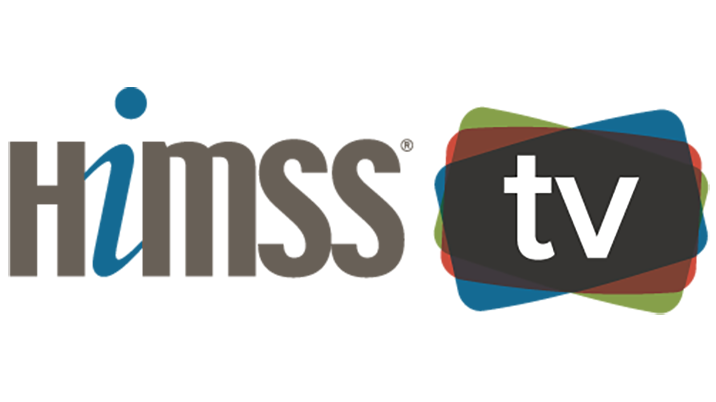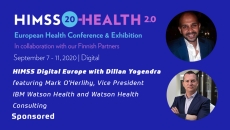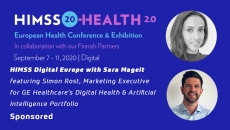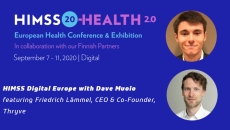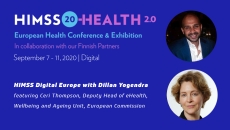HIMSS TV
Liz Ashall-Payne, founder and CEO of ORCHA, says COVID-19 has accelerated the adoption of telehealth, but digital therapeutics, diagnostics and remote patient monitoring will play a more significant role moving forward.
Telehealth Connection TV: Howard University College of Medicine's Michael Crawford discusses what the 1867 Health Innovations Project is finding out about virtual care and telemedicine.
Natalia Polushkina, vice president and CEO at Biomedical Technologies Cluster of the Skolkovo Foundation, says the experience of the pandemic is strengthening the Skolkovo region as regulation changes are accelerating innovation.
During the pandemic, digital tools have been widely adopted across the globe, with remote monitoring for chronic care being popular in the Nordics, says Marianne Larsson, director of new industries and innovation at Innovation Skåne.
IBM Watson Health VP Mark O'Herlihy discusses how using new, fast and frequently changing technology such as a COVID-19 chatbot can help in the pandemic response.
Dr. David Nace, chief medical officer at Innovaccer, discusses the changing landscape of health data and information sharing and COVID-19's effect on data sharing.
GE Healthcare's Simon Rost discusses the solutions that are being used to improve patient care.
Friedrich Lämmel, founder and CEO of Thryve, discusses how extracting high-quality data can help improve patient outcomes by providing personalized treatments more efficiently via digital solutions.
Dr. Ceri Thompson, deputy head of the eHealth, Wellbeing and Ageing unit at the European Commission, discusses why health data systems must be based on infrastructure and mechanisms that people can trust.
This week's top stories include a Universal Health Services cyberattack, Anthem reaching a $39.5 million settlement in a 2015 attack, and Apple Watch's abnormal pulse feature driving unnecessary healthcare visits.
